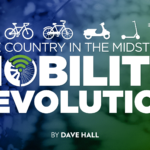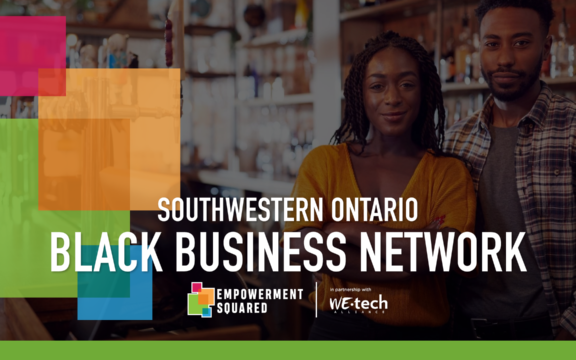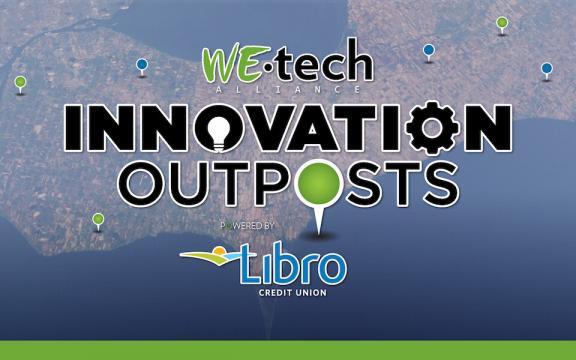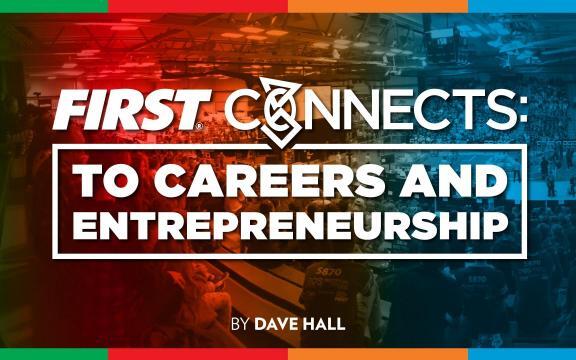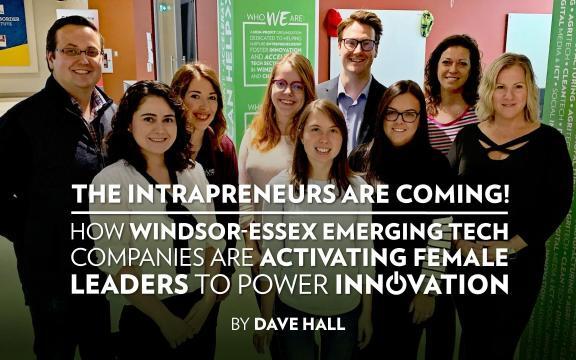There is no doubt that entrepreneurship will continuously play a huge role within society and the economy as time progresses. Not only does this practice create a significant amount of new jobs and opportunities within a given community, but it also teaches crucial life skills such as time management, risk analysis, and overcoming uncertainty.
As research shows, however, there is a gap between students and entrepreneurship. If this gap continues to grow, job creation will decrease in the coming years and there will be a lack of career diversity. This article aims to outline this gap with regard to high school students throughout the Windsor-Essex region and give actionable takeaways on how to bridge it.
After interviewing 21 diverse secondary students from schools including St. Joseph’s Catholic High School, Riverside Secondary School, and Assumption College Catholic High School, information was gathered regarding their plan for life after high school, what they know about tech/entrepreneurship here in Windsor-Essex, and if the community is bringing enough attention to entrepreneurship.
The results are very conclusive of a gray area between education and entrepreneurship.
Bridging the Gap Between Education and Entrepreneurship
When asked what they know about entrepreneurship and what comes to their mind when they hear this term, the most common answer was “business.” Aside from this, only 2 of the 21 students were able to elaborate more on the subject and give an accurate depiction of what this career path entails. What’s more is that almost none of the students were able to give information on how to further get involved in entrepreneurship and many said that they don’t hear much about entrepreneurship in the Windsor-Essex community.
The region has, however, made strides over the past years with new assets becoming available, such as the University of Windsor’s EPICentre, where students get the chance to practice entrepreneurial thinking and surround themselves with like-minded individuals.
Interestingly, more than half of the interviewees were passionate about learning more on the subject of entrepreneurship and even pursuing it more as a potential source of income in their future endeavours. With such an interest in entrepreneurship but lack of knowledge from this up and coming generation of problem solvers and innovators, students were asked what kind of improvements would be most beneficial for them to gain the needed information/experience.
There were a few suggestions that frequently came up in student responses. The most common was a dedicated entrepreneurship class in high school. Different from a traditional business class, this course would focus on educating students on the fundamentals, but also giving them relevant coursework to think/create solutions like an entrepreneur.
In addition, they would be given the opportunity to learn about past entrepreneurs and the things that they faced during their path to success.
A class like this implemented in our high schools would ensure a better understanding of the subject and equip more graduates with relevant information on how to create a business. In addition to this, it would help them decide if they want to pursue this full time in the future and give them a sensible understanding of what to study at the post-secondary level.
An entrepreneurship-based course would also teach necessary skills that other courses simply could not.
“Entrepreneurship classes would be great for people considering building a business for themselves, but also for everyone due to the lessons that they can learn,” says one student from Riverside High School.
It is quite clear that incorporating entrepreneurship at the high school level in a specialized class would not only tighten the gap, but also prepare students for any career that they decide to go into like never before.
“…if entrepreneurship was portrayed better and there were more resources available, then a lot more students would get involved.”
There is also another contributing factor to this gap though that is supported by both the research and the interviewees. Some students have a negative perception of entrepreneurship, built from societal expectations and community views of what a “proper career” looks like.
“Would you rather live in a finished house, or one without a roof and walls? You could build the second house to eventually have a roof and walls, but during this time, rain and snow will get inside,” one student from St. Joe’s puts it.
This theme is also seen in many of the other conversations that took place with the students. They feel that there is too big a risk associated with entrepreneurship to make it worth their time.
“I think that if entrepreneurship was portrayed better and there were more resources available, then a lot more students would get involved,” states another.
To see if this was really the case, students were asked whether more entrepreneurial resources and opportunities being available would influence their decision to pursue it in greater depth. Almost everyone agreed that if there were more resources, entrepreneurship would seem less daunting and they would consider learning more about how they can begin. The research supports this, suggesting that if greater opportunities/learning materials were available to secondary students, then it would be easier to engage and get them excited with entrepreneurship.
To become a doctor, for example, there are various biology and kinesiology classes that help students learn about the body, while also assisting them decide if they’d like to pursue the medical sciences at the post-secondary level. Without these classes, they would have no clue how to get started in a career in medicine and find it very intimidating, driving them into other fields with more opportunities available to them. In fact, the same is true for any career, including business/entrepreneurship. If students are not exposed to something in their teenage years, it is very unlikely that they will give it much thought later on.
Exposing Students to Entrepreneurship
In addition to a class, one unique solution could be to expose students to entrepreneurship through fun-filled, engaging events that give them the ability to create and innovate like an entrepreneur. An event like this would function similar to a hackathon, but instead of being given a weekend to code, students would be given a period of time to come up with a business solution to a challenge prompt. They would then submit a video explaining their idea to a panel of judges and the top performing students would receive some prizes. This could prioritize engaging students with entrepreneurship in a way that taps into their creativity and competitive nature.
Aside from being given the opportunity to think like an entrepreneur, students would get the chance to better their time management and communication skills. Throughout the weekend, there would also be informative workshops helping students navigate through the challenges of creating a business and giving them the ability to connect with existing entrepreneurs. This type of event would shift the focus away from the negative perception of entrepreneurship and show students just how important it is.
When asked if this would better bridge the gap between them and this evolving career path, 17 of the 21 students said yes and made it clear that if more opportunities like this were available throughout Windsor-Essex, many more young people would get involved.
The Changemakers of Tomorrow
All things considered, the gap between students and entrepreneurship derives from a lack of resources available to them and not enough exposure to the subject matter.
While there is certainly an interest among students in becoming entrepreneurs, if they are not given an opportunity to experiment with this interest, the gap will continue to be present. The solution, proposed by the students themselves, is to create relevant classes and community events in order to better reach out to students. As well, the region’s perception of entrepreneurship needs to change, which can be achieved by getting entrepreneurial resources out to more high school students in the coming years, highlighting the benefits, and teaching how to overcome the obstacles.
As we know, the students of today are the CEOs and changemakers of tomorrow, and if we fail to provide them with the necessary material to become successful business developers, then the gap between students and entrepreneurship will increase.
It is clear that implementing the resource opportunities discussed is very important for the future of entrepreneurship within Windsor-Essex and it is imperative that we take action sooner than later.

Adrianno Fallone is a grade 11 student at St. Joseph’s Catholic High School and the Tech Connect High School Ambassador for WEtech Alliance. You can learn more about Adrianno HERE.


